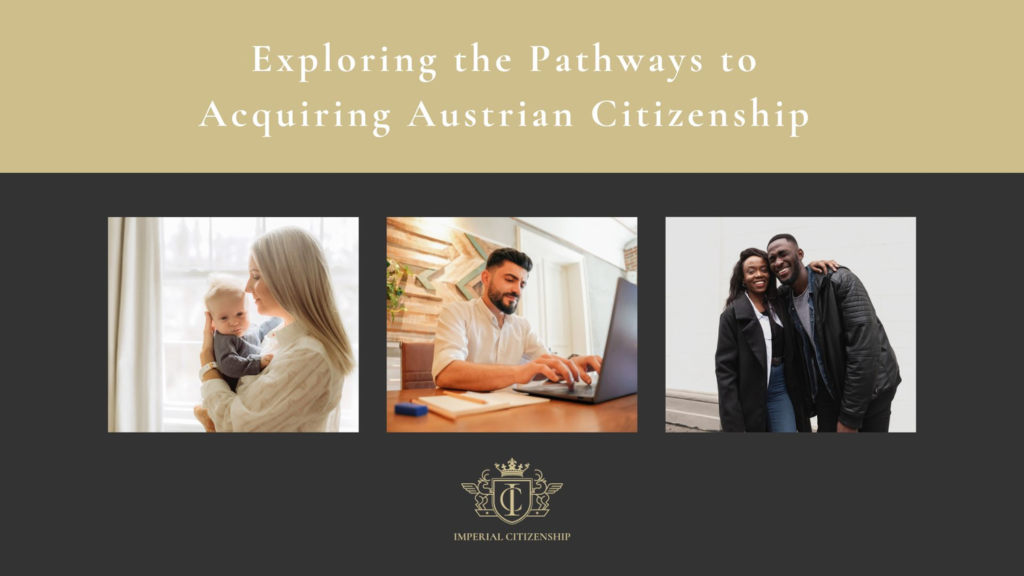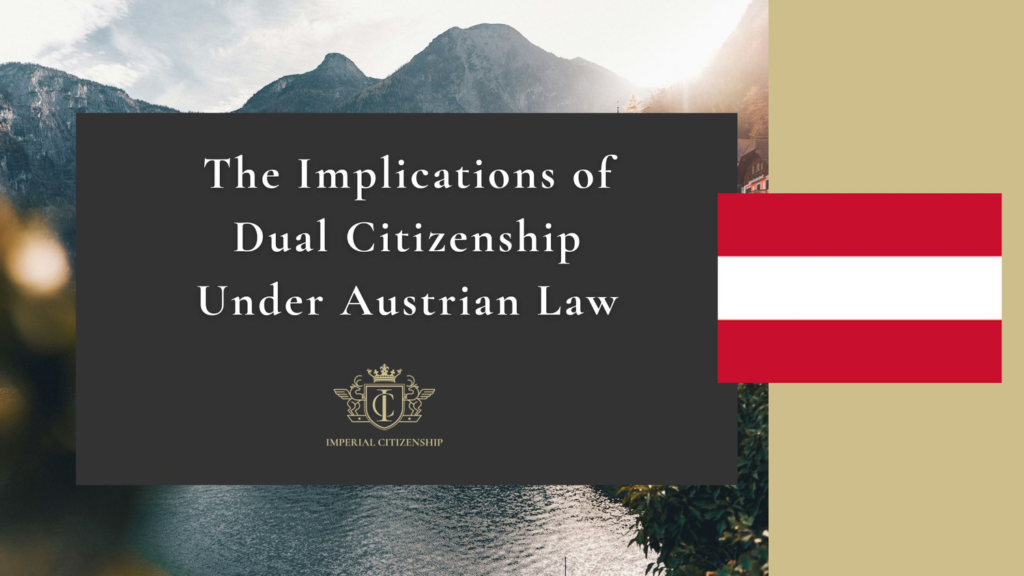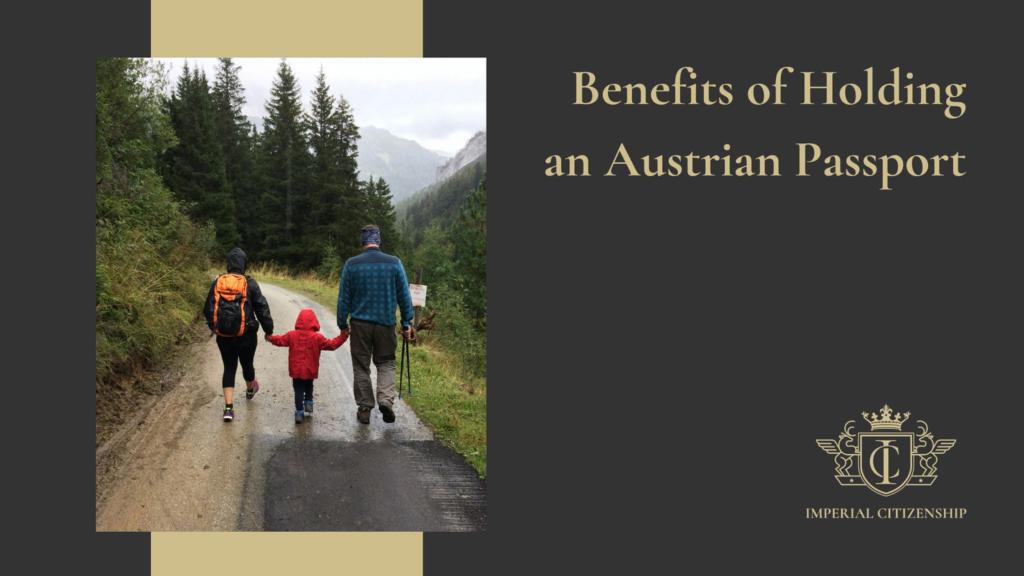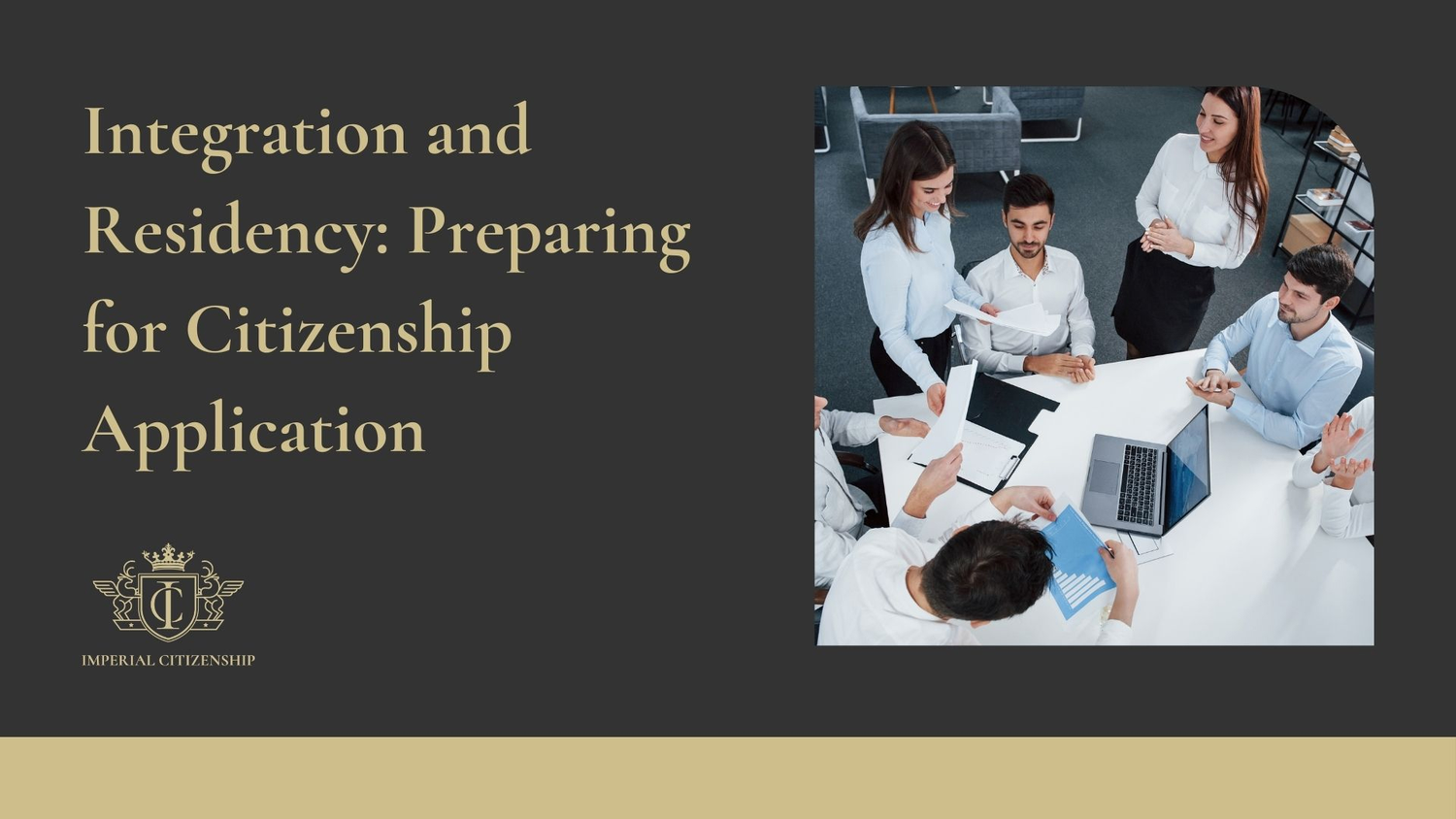Navigating the Process of Citizenship in Austria: A Comprehensive Guide for 2024
- Key Takeaways
- Exploring the Pathways to Acquiring Austrian Citizenship
- Investment-Based Citizenship: A Route for High-Net-Worth Individuals
- The Implications of Dual Citizenship Under Austrian Law
- Retaining and Losing Your Status as an Austrian Citizen
- Benefits of Holding an Austrian Passport
- Steps to Obtain an Austrian Passport After Citizenship Confirmation
- Integration and Residency: Preparing for Citizenship Application
- Summary
- Frequently Asked Questions
Considering citizenship in Austria? Understanding the processes and criteria for eligibility is crucial. From descent to naturalization, and even investment options, this article demystifies the pathways and unpacks the complexities you’ll encounter on the journey to calling Austria home.
Key Takeaways
- Austrian citizenship can be obtained through descent, marriage, and naturalization, with stringent rules regarding dual citizenship, which is generally not allowed unless under special exemptions.
- Austria offers an investment-based citizenship pathway for high-net-worth individuals, requiring significant economic contributions and a thorough application process, potentially allowing dual citizenship.
- The Austrian passport provides extensive benefits such as visa-free travel to over 190 countries and includes rights within the EU.
Exploring the Pathways to Acquiring Austrian Citizenship

The Austrian Nationality Act outlines four main pathways to obtaining Austrian citizenship: by descent, through marriage, naturalization, and investment. Each method has its own unique set of requirements and application processes, which we will explore in this guide. Whether you’re a child of an Austrian citizen, married to one, or have been residing in Austria for a significant period, there’s a pathway tailored for you.
Be aware that Austrian law generally doesn’t allow dual citizenship. So, unless certain exceptions apply, you may have to renounce your current nationality to become an Austrian citizen. But don’t worry! We’ll discuss these exceptions in detail later in the guide.
By Descent: Child Acquires Austrian Citizenship
A child can acquire Austrian citizenship by descent, regardless of their place of birth. This is known as the principle of ‘ius sanguinis’, where citizenship is passed on from an Austrian parent to their child. However, the marital status of the parents can influence the process. For instance, if the parents are unmarried and the father is Austrian, the child secures Austrian citizenship upon recognition of paternity within eight weeks after birth or through a court determination.
The application process to acquire citizenship by descent requires several documents, including:
- The child’s birth certificate
- The Austrian parent(s)’ citizenship certificate
- A Letter of Determination of Citizenship if the Austrian parent was born outside of Austria
Applications submitted within two years of the child’s birth are exempt from the consular fee.
Through Marriage: The Union’s Impact on Nationality
For those married to an Austrian citizen, the possibility to obtain Austrian citizenship exists after fulfilling certain conditions. To be eligible, foreign nationals must:
- Have been legally and continuously resident in Austria for at least six years
- Have been married for at least five years
- Have lived together in a joint household during the marriage
This pathway provides an opportunity for foreign nationals to acquire Austrian citizenship through the union of marriage. Keep in mind that the application process demands proof of the duration of the marriage and residency in Austria, among other requirements.
Naturalization: Becoming an Austrian Citizen by Residence
The process of acquiring Austrian citizenship through naturalization is another viable option. This pathway typically requires a foreigner to have 10 years of legal and continuous residence in Austria. However, these requirements can be reduced for individuals who display significant evidence of personal and professional integration in Austria.
Applicants must also demonstrate financial stability, a clean criminal record, and knowledge of the German language. Applicants must achieve at least B1 level proficiency if they have resided in Austria for 10 years or B2 level for those with 6 years of residence. A test on Austria’s history and culture is also required. However, there are exemptions for certain individuals, such as minors under the age of 14 or those with specific health conditions.
Investment-Based Citizenship: A Route for High-Net-Worth Individuals
For high-net-worth individuals, Austria offers a unique opportunity – citizenship by investment in a foreign country. This involves making a substantial contribution to the Austrian economy, such as purchasing government bonds, in return for citizenship. The Austrian passport, one of the strongest globally, allows visa-free or visa-on-arrival access to over 190 countries, including the United States, the United Kingdom, Hong Kong, Japan, and Singapore.
To learn more about this program, contacting the Austrian embassy or our specialists can provide valuable information and guidance.

With Austrian citizenship, you gain the right to live, work, and move freely within Austria and any other EU state. The political rights and civil liberties that come with being an Austrian citizen, further enhance the appeal of the citizenship by investment pathway.
Criteria for Consideration: Investment and Economic Benefit

Austria’s Citizenship by Investment Program offers a distinctive avenue for individuals to secure Austrian citizenship by showcasing outstanding accomplishments across diverse domains including science, sports, arts, business, and philanthropy. Renowned for its strong economy, unspoiled landscapes, and rich cultural heritage, Austria stands out as a compelling choice for investors aiming to acquire EU citizenship.
To qualify for Austria’s citizenship by investment, individuals are required to make investments starting from €4 million. These investments should be active business ventures that contribute significantly to the Austrian economy. For instance, a joint venture or direct investment in a business that creates jobs or generates new export sales would qualify.
The application process for Austrian citizenship is meticulous and requires the following:
- Submission of personal documentation: Applicants are required to provide comprehensive personal documentation, including proof of identity, birth certificates, and any relevant residency permits.
- A clean criminal record: A crucial prerequisite for citizenship is having a clean criminal record. Any past convictions or legal issues may jeopardize the application process.
- A comprehensive CV: Applicants must furnish a detailed curriculum vitae (CV) outlining their educational background, professional experience, and any notable achievements or contributions in their respective fields.
- Government approval at several levels: The application undergoes rigorous scrutiny and requires approval at various governmental levels. This includes assessments by immigration authorities, security agencies, and other relevant government bodies to ensure compliance with all citizenship criteria.
This process underlines the seriousness and commitment of the Austrian Government to ensure that only deserving applicants are granted Austrian citizenship, maintaining the integrity of those awarded Austrian citizenship.
Application Process: From Investment to Citizenship
The journey from investment to citizenship in Austria entails a meticulous application process, meticulously overseen by government authorities. This comprehensive procedure involves stringent background checks, ensuring that all applicants meet the strict criteria set forth by the Austrian government. From initial submission to final approval, the process typically spans a duration of 12 to 36 months, although passports can be issued promptly upon successful completion of the process.
Applicants must undergo thorough background screenings, with a particular emphasis on providing impeccable references to attest to their character and integrity. While the Austrian Citizenship Act generally mandates that applicants renounce their existing citizenship, exceptions may apply in the case of citizenship by investment. This flexibility allows applicants to retain their current citizenship while gaining Austrian citizenship through investment, making the program even more appealing to prospective investors.
The Implications of Dual Citizenship Under Austrian Law
Although the idea of holding dual citizenship might seem attractive, bear in mind that Austrian law usually limits it. This means that, unless certain exceptions apply, you would typically be required to relinquish your current nationality to become an Austrian citizen.
However, there are certain circumstances under which one can retain their Austrian citizenship while acquiring a foreign one. For instance, Austrian citizens who voluntarily acquire a foreign citizenship will lose their Austrian citizenship unless they apply for and receive permission to retain it before acquiring the foreign citizenship.

Exceptions and Special Cases for Dual Citizenship
As with any rule, there are exceptions. For instance, Austrian citizens can retain dual citizenship if they meet the requirements stipulated by the Citizenship Law, which includes providing reasons that deserve special consideration. These reasons could be personal, such as caring for close relatives with long-term care needs, or situations within the private and family life of the applicant that justify retaining Austrian citizenship.
Children born to parents with different nationalities, including those with a foreign nationality, are also allowed to retain dual citizenship under Austrian law. And for children holding dual citizenship, Austria does not require them to choose a single nationality once they reach the age of majority, although the other state involved may have such a requirement.
Retaining and Losing Your Status as an Austrian Citizen
After acquiring Austrian citizenship, understanding the conditions that can result in the retention or loss of your citizenship becomes crucial. For instance, lost Austrian citizenship is automatically the outcome when a citizen acquires another nationality by their own application, declaration, or express consent, unless they were approved to retain their Austrian citizenship beforehand.
But what happens if you lose your Austrian citizenship, either by choice or by circumstance? The good news is that there are ways to reinstate it under certain conditions.
Reinstatement of Citizenship: For Former Austrian Citizens
Former Austrian citizens who had their citizenship revoked before September 1, 1983, as a result of marriage to foreign citizens, can reinstate their lost citizenship. They can do this by submitting an application within five years following the death of their spouse or divorce.
Moreover, descendants of victims of National Socialism and Austrian stateless persons who left Austria before May 15, 1955, due to persecution or fear of persecution, are also eligible for Austrian citizenship restoration. This provision is a testament to Austria’s commitment to rectify the injustices of the past and uphold the rights of its former citizens.
Benefits of Holding an Austrian Passport
The benefits of holding an Austrian passport extend beyond the right to live and work in Austria. As an Austrian citizen, you can enjoy visa-free or visa-on-arrival access to over 190 countries worldwide. This makes the Austrian passport one of the strongest globally, offering unparalleled travel freedom.
Furthermore, Austrian citizenship offers the following benefits:
- The ability to live, work, and travel freely within Austria and any other EU state
- Political rights and civil liberties, including voting rights in Austrian and EU elections
- Permanent citizenship that can be inherited by future generations, providing long-term security and benefits.

Steps to Obtain an Austrian Passport After Citizenship Confirmation
After your Austrian citizenship is verified, your next course of action is to secure your Austrian passport. The application process requires you to present a range of personal documentation, including:
- a signed and dated application form
- a birth certificate
- possibly a marriage certificate
- divorce decree(s) if you were previously married
In addition to these documents, you will also need to provide two recent passport photographs matching Austrian standards. These must be:
- 35mm by 45mm
- not older than six months
- show your face covering two-thirds of the photo
- have your eyes looking straight forward
- have your mouth closed
- no hair covering the face.
Integration and Residency: Preparing for Citizenship Application

Navigating the path to Austrian citizenship may seem intricate, but with thorough preparation and expert guidance from reputable firms like Imperial Citizenship, the journey becomes not only achievable but also streamlined and efficient. Integration and residency play pivotal roles in preparing for a successful citizenship application, ensuring that applicants meet the necessary requirements and demonstrate a genuine commitment to becoming Austrian citizens.
Summary
Obtaining Austrian citizenship opens a world of opportunities. Whether by descent, marriage, naturalization, or investment, each pathway offers a unique set of requirements and benefits. While the process might seem complex, with the right preparation and understanding, it’s an achievable goal. Remember, becoming an Austrian citizen not only grants you the right to live and work in Austria but also offers the freedom to move within the EU, vote in national and EU elections, and enjoy extensive global travel privileges.
Frequently Asked Questions
Does Austria allow dual citizenship?
Austria does not generally allow dual or multiple citizenship. Acquiring a foreign citizenship usually results in the loss of Austrian citizenship.
How hard is it to get citizenship in Austria?
Acquiring citizenship in Austria poses significant challenges. Citizenship may be granted to foreign individuals for extraordinary accomplishments under Sec. 10(6) of the Austrian Citizenship Act. These achievements can span various fields such as science, sports, arts, or business (including philanthropy). The process of obtaining citizenship through exceptional achievements typically spans a duration of 12 to 36 months. The total cost for a family (including spouse and children up to 18 years old) starts at EUR 4-5 million.
What are the main pathways to obtaining Austrian citizenship?
The main pathways to obtaining Austrian citizenship are by descent, through marriage, and naturalization, with an additional pathway for high-net-worth individuals through investment. These are the primary ways to become a citizen of Austria.
